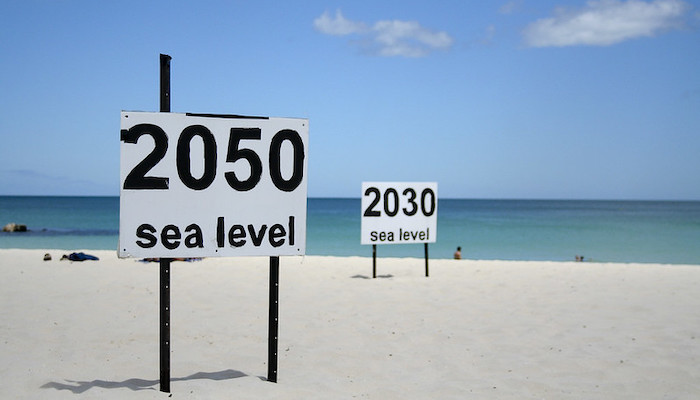PHOTO: FILE
New Zealand Faces an Insurance Crisis Due to Climate Change Risks
As climate change accelerates, New Zealand is facing an increasingly severe crisis in its property insurance market. New research from the Helen Clark Foundation and engineering consultants WSP highlights that, in just a few decades, more than 10,000 properties in major cities such as Auckland, Wellington, Christchurch, and Dunedin could become uninsurable due to rising risks of coastal erosion and flooding. This looming “insurance retreat” could significantly impact homeowners, leaving them vulnerable to climate-related disasters.
The Growing Threat of Insurance Retreat
The report, titled Premiums Under Pressure, outlines how extreme weather events, rising sea levels, and flood risks are driving insurers to withdraw coverage for high-risk properties. Without timely intervention, insurance premiums will become unaffordable for many homeowners, particularly in coastal and flood-prone regions.
Kali Mercer, one of the report’s authors, emphasized the importance of maintaining affordable insurance coverage to protect both individual homeowners and New Zealand’s economic resilience. “Insurance helps individuals, communities, and the country as a whole bounce back from climate-related shocks,” Mercer said. “But as the risks increase, keeping premiums accessible becomes a complex challenge.”
As climate risks continue to escalate, insurers may be forced to scale back or withdraw flood coverage altogether, especially for properties located in areas with high vulnerability to coastal flooding and inland floods. The findings suggest that, by 2050, these uninsurable properties will likely extend across New Zealand’s main urban centres.
What’s at Stake?
The potential consequences of insurance retreat are not just economic—they are social. Without access to affordable insurance, homeowners in these vulnerable areas may face severe financial hardship, especially in the aftermath of a major weather event. If insurance options are not available, people may be forced into poverty, unable to rebuild or recover from the devastation caused by extreme weather events.
Insurance, therefore, plays a vital role in maintaining the resilience of society, ensuring that communities can recover and rebuild after natural disasters. But as the risks grow, the traditional insurance model could falter, leaving thousands of homeowners exposed.
Policy Recommendations and Solutions
The report makes several key recommendations to address these challenges and protect the country’s property owners from the impacts of climate change:
- Residential Flood Insurance Scheme: One of the most significant recommendations is the development of a national residential flood insurance scheme, similar to those already in place in the UK and France. Such schemes could help fill the gap for homes that are either unable to access private insurance or in areas where insurance companies have withdrawn coverage altogether.
- Subsidising Premiums: For those who cannot afford skyrocketing premiums, the report suggests a subsidy scheme that would make insurance more accessible for homeowners in high-risk areas. This would help prevent a situation where only the wealthiest homeowners can afford coverage.
- Standardisation of Policies: A move toward standardising insurance policies and making pricing criteria transparent is crucial. Homeowners often face confusion over how premiums are set and what is included in their coverage. Clear, standardized policies could improve understanding and reduce uncertainty for consumers.
- Government Intervention and Flood Zone Management: The report also advocates for stronger government action, including halting inappropriate development in flood zones and coastal areas. By ceasing to build in high-risk areas, policymakers can reduce future exposure to climate risks and lessen the burden on the insurance market.
- Planned Relocation Framework: In cases where it’s no longer viable to protect properties, the report suggests developing a framework for planned relocation. This would involve helping communities move out of high-risk areas in an organized and supported manner.
- Investing in Climate Risk Mitigation and Adaptation: To keep residential insurance premiums affordable for as long as possible, it’s essential to invest in climate risk mitigation. This could include flood defenses, better drainage systems, and measures to reduce the impact of coastal erosion.
A Call for Urgent Action
Richard Woods, a risk and resilience expert at WSP, warns that New Zealand is “just one major disaster away from insurance retreat becoming a much more complex problem.” With the frequency of extreme weather events on the rise, urgent action is needed from both the government and the private sector to prepare for the impacts of climate change on the insurance market.
The rising risk of uninsurable properties could have a far-reaching impact on the economy and society. However, with proactive policy changes, investment in climate resilience, and the development of a comprehensive national insurance scheme, New Zealand can better protect its citizens from the growing threat of climate-related disasters.
As the report concludes, it’s clear that the future of New Zealand’s residential insurance market will depend on how effectively the country addresses these climate risks. Only by acting now can New Zealand ensure that its insurance system remains sustainable and capable of protecting homeowners in the face of climate change.
For further details on the report Premiums Under Pressure and the full set of recommendations, visit the Helen Clark Foundation website.
SOURCE: RNZ














